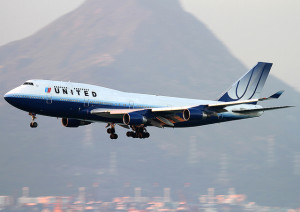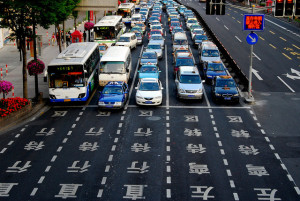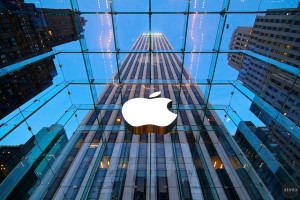By Peter Ward September 11, 2015
United Ousts CEO Over Corruption Investigation

United Airlines B747 ©Christian Junker
American airline United Continental ditched its CEO Jeff Smisek on Tuesday, amid a corruption investigation into the company’s dealings with the Port Authority of New York and New Jersey.
Oscar Munoz will take over from the former CEO, Chairman and President Smisek, who will receive a $4.9 million severance pay off.
In April, Bloomberg published a story that revealed alleged misconduct was discussed over a dinner in Manhattan by United and the Port Authority. The airline wanted millions of dollars in public funding for Newark airport, including a $600 million extension of the PATH train, from downtown Newark to the airport. At one point during the meal, Port Authority Chairman David Samson said in a “playful, but not joking” tone that the airline should revive a money-losing route from Newark to Columbia, South Carolina, which gave Samson a shorter journey to his weekend home.
Although United didn’t agree to the request at the dinner, the airline did resurrect the service shortly afterward. The U.S. attorney’s office has been investigating whether the deal was illegal or fair bargaining for more than a year.
Two of Smisek’s top ranking executives were also shown the door this week: Nene Foxhall, the executive vice president of communication and government affairs and Mark Anderson, a senior vice president with government affairs responsibility, also left in relation to the investigation.
Uber Goes Big in China

Lu Jia Zui, Shanghai, China ©Carlos ZGZ
Ride-hailing app Uber announced on Tuesday it had raised $1.2 billion in investment to fund its expansion in China.
At an event in Beijing, Uber CEO Travis Kalanick unveiled plans to roll out the taxi app in more than 100 Chinese cities over the next year. The company previously set aside $1 billion to expand in China, and now adds this latest round of financing, which was led by Chinese internet giant Baidu, to its war chest.
Kalanick said that the company has already made significant strides in China. “When we started this year, we were about 1% market share. Today, nine months later, we’re looking at about 30 to 35% market share,” the CEO said in comments first reported by Reuters.
Uber is reportedly valued at $51 billion, the largest valuation ever for a private venture capital-backed company. But the San Francisco-based giant will face stiff competition from Didi Kuaidi in China, the local competitor, which dominates the market.
On Monday it was reported that Didi Kuaidi had secured $3 billion in a funding round from undisclosed investors. The company’s previous investors include technology heavyweights such as Alibaba, Softbank and Tencent. And in a move which will surely increase competition between the two rivals, it was reported on Thursday that Didi Kuaidi invested in Lyft, Uber’s biggest rival in the U.S.
Brazil Downgraded to ‘Junk’

Santa Teresa, Rio de Janeiro, Brazil ©sandeepachetan.com travel photography
Standard & Poor’s cut Brazil’s credit rating to ‘junk’ on Wednesday, stripping the South American nation of the investment-grade rating it earned in 2008.
Brazil has been hit heavily by falling commodity prices, and President Dilma Rousseff’s government had imposed austerity measures in an effort to avoid the downgrade. Brazil had been kept on a “negative watch” by S&P, and The Economist reports that for months the cost of insuring Brazilian government bonds against default has been higher than for Turkish bonds, which are already rated as ‘junk’.
S&P cut Brazil’s credit rating from BBB- to BB+, which denotes a substantial credit risk to investors. And the bad news may not end there, as the outlook on the rating is still negative, meaning there could be further downgrades in the future.
“The political challenges Brazil faces have continued to mount, weighing on the government’s ability and willingness to submit a 2016 budget to Congress” that met economic targets,” the ratings agency said in its report. “The negative outlook reflects what we believe is a greater than one-in-three likelihood of a further downgrade due to a further deterioration of Brazil’s fiscal position.”
Brazilians already face rising unemployment levels and prices, and left wing President Rousseff’s austerity solution has come under fire from all sides of the political spectrum in Brazil.
Apple’s New Rollout

Apple Store, 5th Ave., New York City ©Andy
Apple announced a host of new products at an event on Wednesday, including a new iPhone, iPad, a revamped Apple TV – and a $100 pencil.
The San Cupertino-based technology giant unveiled its latest iPhone iterations – the iPhone 6S and 6S Plus – set to hit stores in time for the holiday season. The iPhone accounts for 56% of the company’s profits, and the last launch of a new iPhone was followed by an $18 million profit in the fourth quarter of 2014, the most profitable quarter ever for a publicly traded company.
Apple also revealed its new iPad Pro, which is aimed at companies and features an optional keyboard and a $100 stylus, called the Apple Pencil.
Investors seemed unimpressed with the new offerings, however. Shares in the company closed on Wednesday down 1.9%. The decline was a particular disappointment as the stock didn’t have its usual jump prior to the announcement, possibly due to low expectations prior to the launch. The lack of buying before the event led some to believe shares could rebound.
European Migration Mapped
The refugee crisis in Europe has dominated the headlines in the past few weeks. Attitudes have shifted towards those fleeing conflict zones such as Syria, Iraq and Libya following the publication of several viral photos conveying the struggle of innocent people displaced by war.
But opinion in Europe is still split between those demanding their government help those in need, and others adopting a ‘protect our own, not others’ attitude.
A data visualization published by Quartz on Thursday showed the growing number of refugees leaving Syria over the past four years. The map shows how refugees initially moved to neighboring countries such as Lebanon, Egypt and Iraq, but over time made their way to Europe. Syrian citizens have now filed around 350,000 asylum applications in Europe and have been boosted by the news that Germany will take 500,000 asylum seekers per year, dwarfing the likes of the U.K., which, after public pressure, agreed to take 4,000 per year until 2020.
A related interactive map from The International Organization of Migration shows how common it is for people to move between countries. The map uses data from 2010 on how many migrants have moved to each individual country and from where, but is a good resource to gauge the flow of people around the world. For example, the map reveals there are just over 2,000 migrants from Syria currently living in the U.K., which has a population of more than 64 million.
Economists generally agree that immigration is mostly good for a country’s economy. The Atlantic describes the term ‘immigration surplus’, meaning immigration creates new demand for goods and services, and adds more jobs. Even if migrants are replacing native workers, goods and services are created more cheaply, benefitting the whole country. The White House concluded in a 2007 report that immigration has an overall positive effect on the U.S. economy.
This entry was posted on Friday, September 11th, 2015 at 4:51 pm. It is filed under Week in Review and tagged with Apple Inc., Apple TV, Brazil credit rating, Jeff Smisek, refugee crisis, Uber China, United Continental. You can follow any responses to this entry through the RSS 2.0 feed.
Comments are closed.
